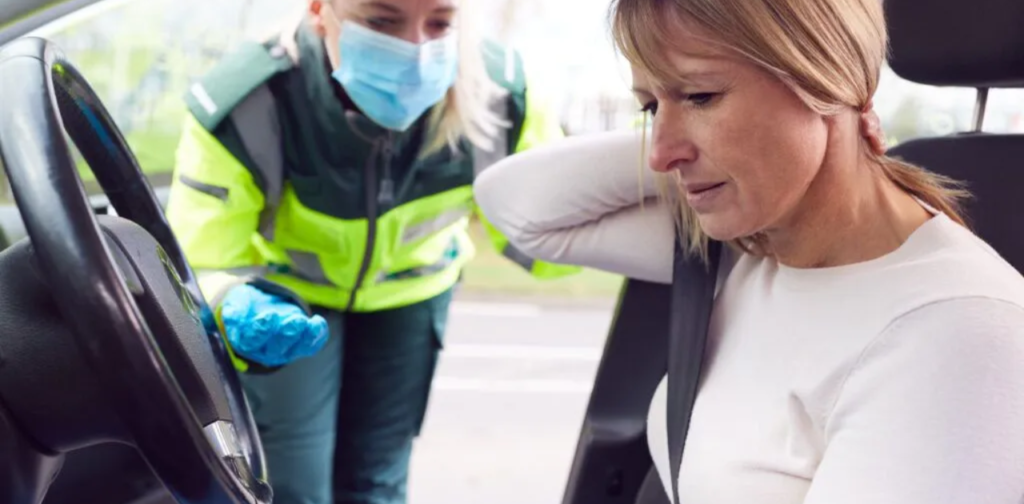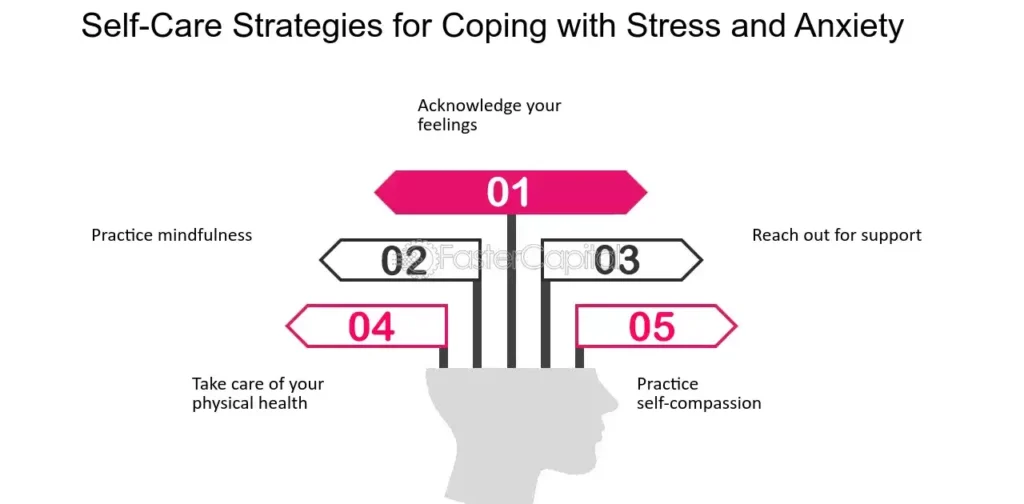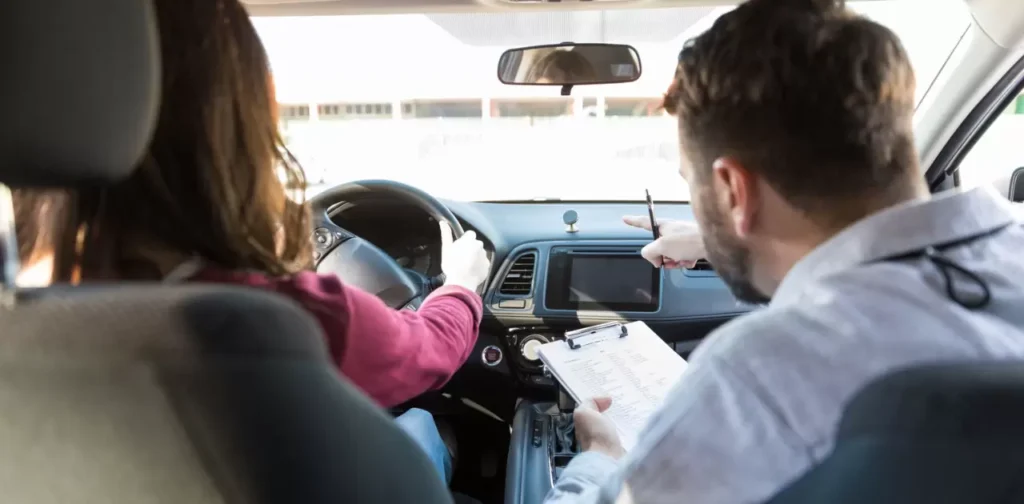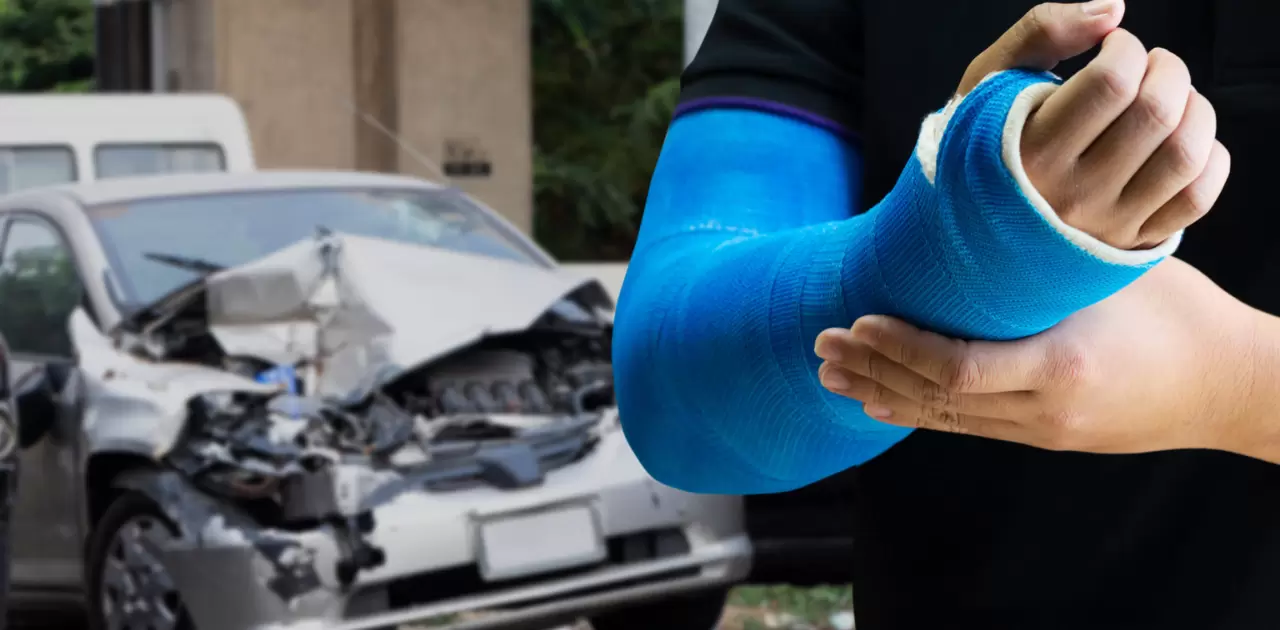After a car accident managing injuries is crucial for recovery. The first step is seeking medical attention promptly to assess and treat any injuries. This may include visiting the emergency room or seeing your primary care physician.
Medical professionals can provide necessary treatment and guidance for healing.Once you have received medical care follow your healthcare provider’s recommendations closely. This may involve rest medication physical therapy or other treatments tailored to your injuries.
keep track of your symptoms and attend all follow up appointments to monitor your progress. By prioritizing your health and following medical advice you can effectively manage post car accident injuries and facilitate a smoother recovery process.
Trauma and Post-Traumatic Stress Disorder (PTSD)
Experiencing a car accident can lead to trauma and post-traumatic stress disorder (PTSD). Trauma refers to the emotional response to a distressing event like a car crash while PTSD is a mental health condition triggered by traumatic experiences.
Symptoms of PTSD may include flashbacks nightmares anxiety and difficulty sleeping.It is important to recognize the signs of trauma and PTSD after a car accident. Seeking support from mental health professionals such as therapists or counselors can help you cope with these symptoms.
Therapy, medication and self care practices like exercise and mindfulness can be effective in managing trauma and PTSD allowing you to heal and move forward after the accident.
Read more Blog: How to Secure Your Vehicle from Electromagnetic Pulse
8 Tips to Recover from Your Trauma and Safely Drive Again
Recovering from trauma after a car accident is essential for both mental well-being and safe driving. Here are eight tips to help you recover and regain confidence behind the wheel:
- Handle the Initial Shock: Seek medical attention to address any physical injuries and assess your mental state.
- Seek Professional Help: Consider therapy or counseling to manage post-traumatic stress and anxiety.
- Practice Self-Care: Engage in activities like exercise, journaling, and spending time with loved ones to promote healing.
- Cope with Anxiety: Develop strategies to manage stress and anxiety, such as mindfulness or deep breathing exercises.
- Social Support: Surround yourself with supportive friends and family who can provide emotional support during your recovery.
- Grieving and Acceptance: Allow yourself to process emotions related to the accident acknowledging and validating your feelings.
- Build Resilience: Take proactive steps to address emotional injuries and develop coping strategies for the future.
- Return to Driving Gradually: Start by ensuring your car is safe have a trusted companion accompany you on initial trips and gradually increase your driving exposure.
Handling the Initial Shock

Experiencing shock after a car accident is common and can leave you feeling disoriented and overwhelmed. It is important to seek medical attention promptly to assess any physical injuries and evaluate your mental state.
Medical professionals can provide immediate care and support to address both physical and emotional needs.During this time it is normal to have difficulty processing what has happened and understanding your emotions.
Allow yourself to lean on friends and family for support and do not hesitate to express how you’re feeling. By acknowledging and addressing the initial shock with medical care and support from loved ones you can begin the journey towards recovery and healing.
Professional Therapist and/or Psychiatrist Help
Seeking help from a professional therapist or psychiatrist can be instrumental in coping with the emotional aftermath of a car accident. These mental health professionals are trained to provide support and guidance tailored to your individual needs.
Therapy sessions can offer a safe space to explore your feelings develop coping strategies and work through trauma associated with the accident.A psychiatrist can also offer medication management if necessary helping to alleviate symptoms of anxiety depression or post-traumatic stress disorder.
Do not hesitate to reach out for help if you are struggling to recover from the emotional impact of the accident. With the support of a therapist or psychiatrist you can learn to manage your symptoms and regain a sense of stability and well being.
Read more Blog: Electric Full Suspension Mountain Bike
Self-Care Practices
Engaging in self-care practices is essential for promoting emotional healing and resilience after a car accident. Exercise such as walking or gentle yoga can help reduce stress and improve your mood.
Spending time in nature can also provide a sense of calm and relaxation offering a much needed break from the challenges of recovery.Other self care activities include taking warm baths to soothe tense muscles and practicing journaling to express your thoughts and emotions.
Connecting with loved ones and talking about your experience can provide comfort and support. Remember to prioritize adequate rest and sleep as proper rest is crucial for both physical and emotional recovery.
Coping Strategies: Managing Anxiety and Stress

Managing anxiety and stress after a car accident requires implementing effective coping strategies. One helpful approach is to identify triggers that contribute to your anxiety and develop techniques to address them.
This might involve deep breathing exercises progressive muscle relaxation, or mindfulness practices to help calm your mind and body during moments of stress.Creating a structured routine and prioritizing tasks can provide a sense of control and stability reducing feelings of overwhelm.
It is important to communicate your needs to friends family and colleagues allowing them to offer support and understanding during this challenging time. By incorporating these coping strategies into your daily life you can better manage anxiety and stress and promote a sense of well-being as you navigate your recovery journey.
Mindfulness and Meditation
Practicing mindfulness and meditation can be powerful tools for managing anxiety and stress after a car accident. Mindfulness involves focusing on the present moment without judgment which can help calm racing thoughts and reduce overall stress levels.
Simple mindfulness exercises, such as deep breathing or body scans, can be practiced anywhere and anytime to promote relaxation and mental clarity.Meditation involves intentionally directing your attention inward, often through techniques like guided visualization or mantra repetition.
Regular meditation practice can help cultivate a sense of inner peace and resilience making it easier to cope with challenging emotions and situations. By incorporating mindfulness and meditation into your daily routine you can cultivate a greater sense of calm and balance as you navigate the aftermath of a car accident.
The Role of Social Support
Social support plays a crucial role in coping with the emotional aftermath of a car accident. Surrounding yourself with understanding friends family and loved ones can provide comfort and validation during a challenging time.
Sharing your feelings and experiences with trusted individuals can help alleviate feelings of isolation and promote emotional healing.Research has shown that strong social support networks can significantly decrease the risk of developing post traumatic stress disorder after a traumatic event.
Friends and family can offer practical assistance such as helping with household tasks or transportation easing the burden as you focus on recovery. By leaning on your support system, you can feel less alone and more resilient as you navigate the journey toward healing.
Grieving and Acceptance
Grieving and acceptance are essential aspects of processing the emotional impact of a car accident. It is natural to experience a range of emotions including sadness anger and fear as you come to terms with what has happened.
Allow yourself the time and space to grieve for any losses be they physical emotional or psychological.Acceptance involves acknowledging the reality of the situation and finding ways to move forward with your life.
This does not mean forgetting about the accident or minimizing its impact but rather learning to integrate the experience into your life in a way that allows you to grow and heal. By giving yourself permission to grieve and accepting the changes that have occurred you can begin the process of rebuilding and finding hope for the future.
Building Resilience
Building resilience is about developing the ability to adapt and bounce back from adversity. It involves actively cultivating skills and strategies to cope with life’s challenges including those posed by a car accident.
Resilience can be strengthened through practices like mindfulness self-care and seeking support from others.By embracing a growth mindset and viewing setbacks as opportunities for learning and growth you can build resilience in the face of adversity.
Developing a sense of purpose and meaning in your life can also enhance resilience, helping you navigate difficulties with greater strength and determination. With resilience as a foundation, you can better withstand the emotional impact of a car accident and emerge stronger on the other side.
Returning to Normalcy: Driving Again

Returning to driving after a car accident can feel daunting but it is a significant step towards reclaiming your independence and normalcy. Start by ensuring your vehicle is safe to drive addressing any repairs or maintenance issues promptly.
Consider asking a trusted friend or family member to accompany you on your first few journeys for added support and reassurance.
Take things slowly and gradually increase your driving exposure starting with short trips in familiar areas with minimal traffic.
Practice relaxation techniques such as deep breathing or mindfulness to help manage any anxiety or nervousness you may experience while driving. With patience support and perseverance you can regain your confidence behind the wheel and resume your daily activities with greater ease.
Frequently Asked Questions
What should I do immediately after a car accident?
Check for injuries move to a safe location and exchange information with the other driver.
How soon should I seek medical attention after a car accident?
It is important to seek medical attention as soon as possible, even if you don’t feel injured right away.
Should I speak to the other driver’s insurance company after an accident?
It is generally advisable to consult with your own insurance company before speaking to the other driver’s insurer.
How long do I have to file a car accident claim?
The time limit to file a car accident claim varies by state, but it’s typically within a few years of the accident.
Can I still pursue compensation if I was partially at fault for the accident?
Depending on the laws in your state, you may still be able to seek compensation even if you were partially at fault for the accident.
Do I need a lawyer for a car accident claim?
It is not always necessary, consulting with a lawyer can help you understand your rights and navigate the legal process more effectively.
Conclusion
Recovering from a car accident involves physical emotional and legal aspects that require careful attention and support. By following the steps outlined in this guide such as seeking medical help accessing social support and practicing self-care individuals can navigate the aftermath of an accident more effectively and begin the journey toward healing and recovery.
Remember you are not alone in this process.You need medical assistance legal guidance or emotional support, and reach out to trusted professionals and loved ones for help. With patience resilience, and the right support system, you can overcome the challenges of a car accident and move forward with confidence towards a brighter future.




![Jynxzi Age, Net Worth, Career[2024]](https://filterabout.com/wp-content/uploads/2024/05/Who-Is-Shanin-Blake-Age-Wiki-Parents-Dating-Net-Worth-300x148.jpg)
![Jynxzi Age, Net Worth, Career[2024]](https://filterabout.com/wp-content/uploads/2024/05/Jynxzi-Age-Net-Worth-Career2024-300x148.jpg)


![Kutty Surumi Net Worth, Bio, Age[2024]](https://filterabout.com/wp-content/uploads/2024/05/Kutty-Surumi-Net-Worth-Bio-Age2024-300x148.jpg)



![Jynxzi Age, Net Worth, Career[2024]](https://filterabout.com/wp-content/uploads/2024/05/Who-Is-Shanin-Blake-Age-Wiki-Parents-Dating-Net-Worth-150x150.jpg)